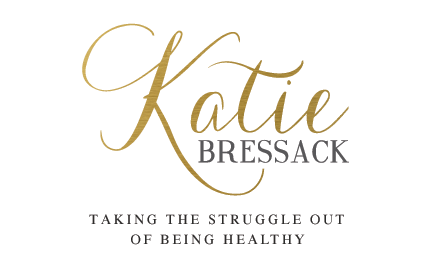Why Do We Feel Bloated All The Time?
Do you feel bloated no matter what you eat? Have you taken foods out of your diet that you think are triggering the feeling, but yet still feel bloated? Digestion is KEY for our hormonal health which is why I often see women experiencing PMS, painful or heavy periods, breakouts and stubborn weight loss also experiencing digestive issues. Today we are going to chat about the real reasons you feel bloated and ways that you can improve your digestion.
I know it’s a bit TMI, but it’s really important to keep track of your bowel movements because we can tell so much about our health by what is happening in the privacy of your bathroom. Check out the Bristol Stool chart for a great reference.
If you’ve been experiencing digestive issues for an extended time, making changes to your diet can improve the way you are feeling. In the meantime, reach out to your doctor to make an appointment. Most bloating is caused by specific foods, but there could be an underlying issue that would be helpful to talk to your doctor about. Although bloating might be common it doesn’t have to be an every day occurrence when your digestive system is working properly. Read more about the importance of digestion for your hormonal health here.
The Real Reasons You Feel Bloated. What Causes Bloating
Digestion starts in your mouth so the first step to take to get to the root reason you are feeling bloated is to take a closer look at what you are eating and how fast you are eating meals and snacks.
Eating Too Fast Can Cause Bloating
Have you ever noticed how fast you are actually eating? Whenever we go out to eat I look around at the people in the restaurant and most of them eat their entire dinner in under five minutes. That is really fast, and I’m sure there isn’t a lot of chewing involved! We’ve become programmed to do everything at such a fast pace, that most of the time we are not even aware of how fast we eat our meals and snacks. Eating too fast can result in swallowing more air, increasing bloating symptoms.
Processed Foods Can Cause Bloating
Eating foods consisting of fillers such as wheat, soy, dairy, corn, and sugar may also be causing bloating. What has happened over the years is that most of the packaged foods have SO many fillers and we are consuming more gluten, dairy, sugars, etc. than we have in the past. This becomes very taxing on our digestive system. Also, “foods” like artificial sweeteners are harder to break down and can wreak havoc on our hormones and increase bloating, as our bodies don’t recognize them as a source of nutrients.
Overeating Can Cause Bloating
Many of us wait until we are “hangry” before we eat, in that case I see many of us eating too much all at once. If you feel bloated after every meal, let’s take a look at what’s on your plate. We want to make sure that you are getting enough healthy fats, lean proteins and fiber so you can feel satisfied. We also want to eat until we are about 80% full, rather than feeling stuffed. I know it’s challenging when you are eating your favorite food so try to slow down, put your fork down in between bites, avoid eating in front of the television and save leftovers for lunch the next day.
You will notice that you start to feel more satisfied with your meals when you start to slow down and pay attention to you are eating. Please note that It takes about 20 minutes for our belly to tell our mind that we are satisfied so slowing down really helps with our mind and body connection.
Other reasons you might feel bloated
Our diet and lifestyle has a huge impact on our digestive system. It’s important to take a holistic approach to see if it’s the food or your lifestyle causing the bloating.
Stress Can Cause Bloating
There is a very STRONG connection between our mind and gut! When stressed, your brain sends messages to your gut in the form of chemicals. These chemicals affect how well your gut works. When I work with women with high stress lives, they often have digestive issues and hormonal imbalances. It’s all connected. That’s why it becomes very important to not only look at what you are eating, but how are you coping with the stress in your life. When we focus on stress management and what we are eating it will make a huge difference in the way we feel. Especially since our stress hormone cortisol can totally wreck havoc on our lives and hormones.
Specific Foods Can Cause Bloating
If you’ve felt bloated for a while now, it’s time to track your food. I’m not talking about counting calories or macros, but simply paying attention to how your body feels after you eat. For example, you can take photos, use an app or write in a journal. I find this super helpful when working with my clients to help us get to the root cause of the digestive issues. This way we can start to see patterns and then try an elimination diet with this specific food to see if your health improves.
Gluten Can Cause Bloating
Is gluten bad for hormones? The short answer is YES! I like to think of gluten almost acting like glue in our digestive tract. I see gluten causing most digestive issues like bloating, constipation and diarrhea. Gluten can also cause headaches, migraines, weight gain, breakouts and fatigue. It is not helpful for hormones either, due to the inflammation.
When I was experiencing hormonal imbalances which led to the discovery of me having Hashimoto’s, I really didn’t want to believe it was gluten. I love bread, way more than I love ice cream, but the moment I took it out of my diet and started eating gluten-free I no longer felt lightheaded and the inflammation I was experiencing in my hands went away.
Not everyone has a gluten sensitivity, but most everyone feels better by just consuming less. I think the easiest place to start is to look at how often you are eating foods that contain wheat and start to have less of that to see if you start to notice any difference in your body.
The most severe form of gluten sensitivity is celiac disease where the immune system attacks the gluten proteins. It also attacks an enzyme in the cells of the digestive tract called tissue transglutaminase. In this case you must avoid gluten at all costs.
Dairy Can Cause Bloating
Almost identical with gluten, one of the main reasons women don’t feel thier best when consuming dairy products is that it causes inflammation. Also, as we age we have less and less of the digestive enzyme lactose so it becomes more difficult for our body to digest dairy. I used to eat a block of cheese a week with crackers, it was my staple food in college. Now that I’ve cut way back on dairy when I eat it now it doesn’t bother my stomach as much as it used to.
Having less dairy or eliminating it from your diet can help with cramps, irregular periods, PCOS, headaches, bloating, moods swings, weight gain, moodiness (pretty much most of the uncomfortable feelings your body may be experiencing). I see many of my clients feeling okay with dairy from sheep or goats so if you’d like to start there you might see a huge improvement with your hormones and bloating.
Read all about my favorite foods to help support and improve your digestion. If you are not sure what is going on with your bloating, reach out to your doctor today, especially if you have chronic digestive issues you might want to run additional tests.
The Root Reasons You Feel Bloated. Consult With Your Doctor
It’s critical to talk to your doctor about your bloating, constipation, diarrhea and gas so they can run additional tests if needed. If you have been dealing with chronic digestive issues for a while and have made some adjustments to your diet and lifestyle work with a functional medicine or GI doctor.
SIBO
Small intestinal bacterial overgrowth occurs when bacteria that normally grows in other parts of the gut start growing in the small intestine. This can cause bloating, stomach pain and diarrhea. The best way to know if you have SIBO is to do breath testing. This tests for the presence of hydrogen or methane in the breath at specific intervals after a person drinks a liquid containing a sugar solution, such as glucose or lactulose.
IBS
Irritable bowel syndrome is a common disorder that affects the large intestine. If you’ve been experiencing cramping, abdominal pain, bloating, gas, and diarrhea or constipation, or both for a long time reach out to your doctor. Diet is the best way to improve these symptoms.
Leaky Gut
Leaky gut, also known as increased intestinal permeability, is a digestive condition in which bacteria and toxins are able to “leak” through the intestinal wall. This is not typically traditionally diagnosed. One of the best way to test this is a food intolerance or a parasite test. Again diet can help improve the way you feel, bone broth is one of the best foods to introduce to help start healing the gut.
Digestion is key for hormonal health so it’s very important to have regular bowel movements in order to support your hormones. Need more support? Book a free consultation call with me where we can discuss your diet and create a specific plan to help you feel hormonally balanced. Click here to schedule a time with me.
Blog Post Updated June 3, 2021
I’d love to hear your thoughts!
- Was this post helpful for you? Or, do you have any additional questions? Comment below and let me know!
- Share with your friends, forward this along or post on social. You can also join me on Instagram and in my private FB group
- Want a deeper look into your hormones? Take my quiz to see what foods might be helpful to add into your diet
- Sign up for my newsletter full of women’s health tips and get your FREE guide, the five steps to take today to help balance your hormones
Medical Disclaimer
Information in this post and on this web site is provided for informational purposes only. The information is a result of practice experience and research by the author. This information is not intended as a substitute for the advice provided by your physician or other healthcare professional or any information contained on or in any product label or packaging. Do not use the information on this web site for diagnosing or treating a health problem or disease, or prescribing medication or other treatment. Information and statements regarding dietary supplements have not been evaluated by the Food and Drug Administration and are not intended to diagnose, treat, cure, or prevent any disease. Always speak with your physician or other healthcare professional before taking any medication or nutritional, herbal or homeopathic supplement, or using any treatment for a health problem.


.png)
.png)
.png)